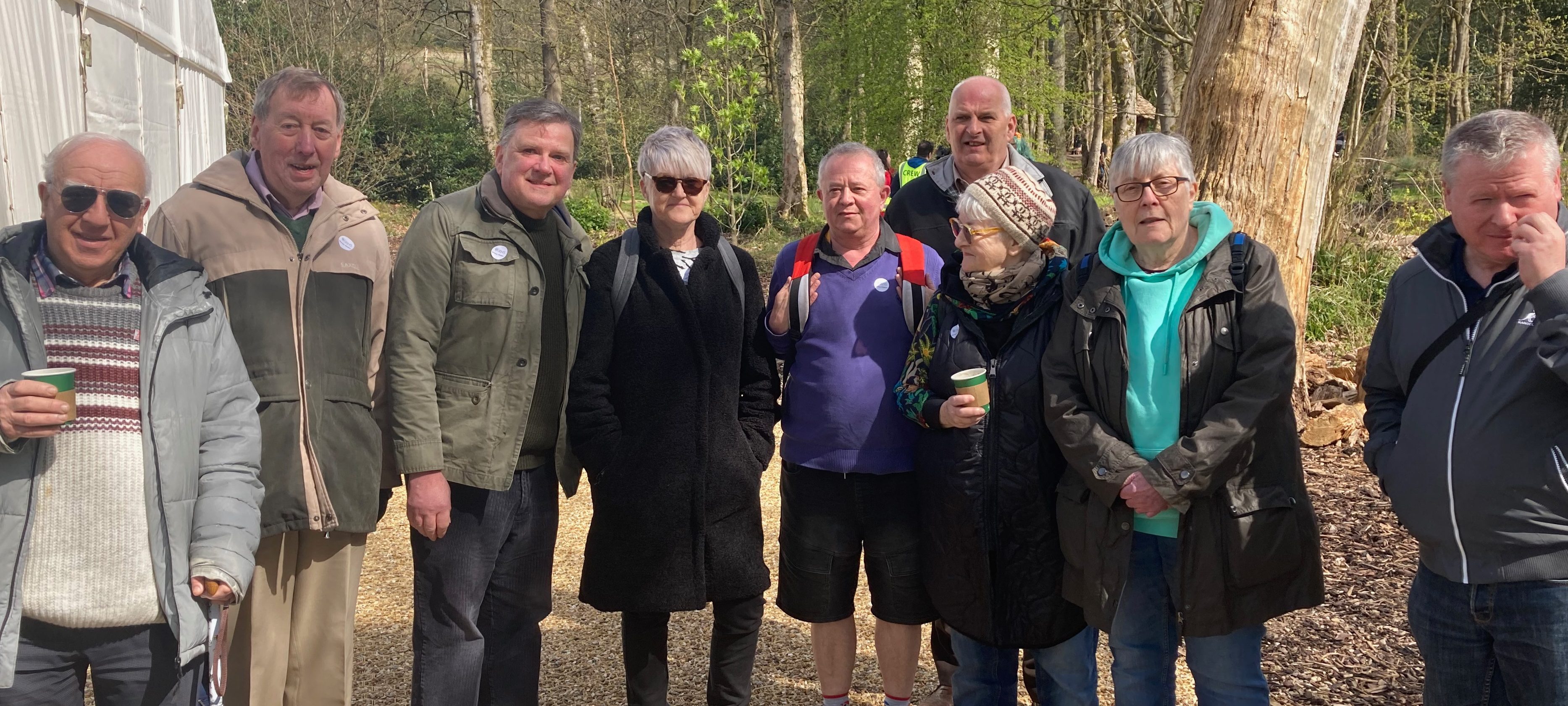Lytham

Lytham St Annes is a seaside town in the Borough of Fylde in Lancashire, directly south of Blackpool. The town is made up of the four areas of Lytham, Ansdell, Fairhaven and St Annes-on-Sea.
We visited leafy Lytham. The name Lytham comes from the Old English hlithum, plural of hlith meaning ‘(place at) the slopes’. Lytham is mentioned in the Domesday Book as Lidun.
The Green, a strip of grass running between the shore and the main coastal road, is a notable Lytham landmark – the restored Windmill and Old Lifeboat House Museum are here. The Green overlooks the estuary of the River Ribble and the Welsh mountains, and has recently seen an annual five-day musical festival.
The festival has featured a variety of leading bands and musicians including The Human League, Madness, Nile Rodgers & Chic, The Human League, Kylie Minogue, Rod Stewart, Diana Ross, Duran Duran and Tears for Fears.

We split into small groups – some of us went to Senior’s Fish & Chips where they serve two pieces of cod, two haddock and two halibut with unlimited chips and unlimited tea or coffee, all for under £10.00.
Another good day out with more photos here.

International Non-binary Day
Thursday 14 July is International Non-binary Day. It has been celebrated on 14 July since 2012. This date was chosen because it falls at the midpoint between International Women’s Day (8 March) and International Men’s Day (19 November).
Non-binary or genderqueer is an umbrella term for gender identities that are not solely male or female—identities that are outside the gender binary. Non-binary identities fall under the transgender umbrella, since non-binary people typically identify with a gender that is different from their assigned sex, though some non-binary individuals do not consider themselves transgender.

Non-binary people may identify as an intermediate or separate third gender, identify with more than one gender, no gender (agender), or have a fluctuating gender identity (genderfluid). Gender identity is separate from sexual or romantic orientation, and non-binary people have a variety of sexual orientations, just as cisgender people do. Being non-binary is also not the same as being intersex; most intersex people identify as either male or female.
Non-binary people as a group vary in their gender expressions, and some may reject gender “identities” altogether. Some non-binary people are medically treated for gender dysphoria with surgery or hormones, as trans men and trans women often are.
Being non-binary can be dismissed by some as a new fad, born from a western identity-obsessed culture – however non-binary people have been recognised and recorded round the world. In India non-binary people have been mentioned in Hindu texts dating back over 2000 years, and many cultures, such as some Native American peoples, Hawaiians, and Tahitians, have a history of inclusion of a third gender in their societies’ roles.



Thanks for your article on non binary people Tony. Many people find the concept hard to take seriously and they have no legal status available to them which is something that needs to be addressed by changes to the Gender Recognition Act, which naturally this government has aborted!
LikeLike